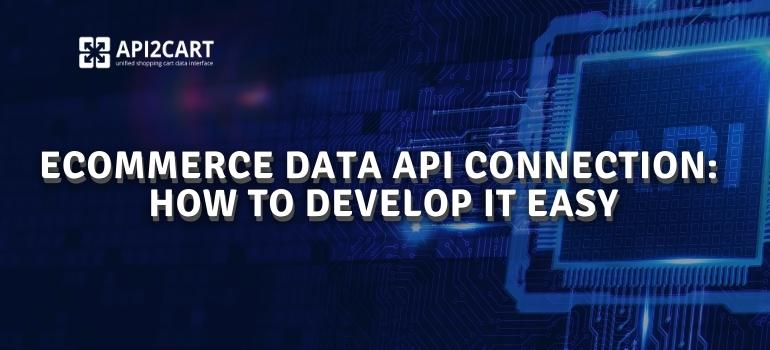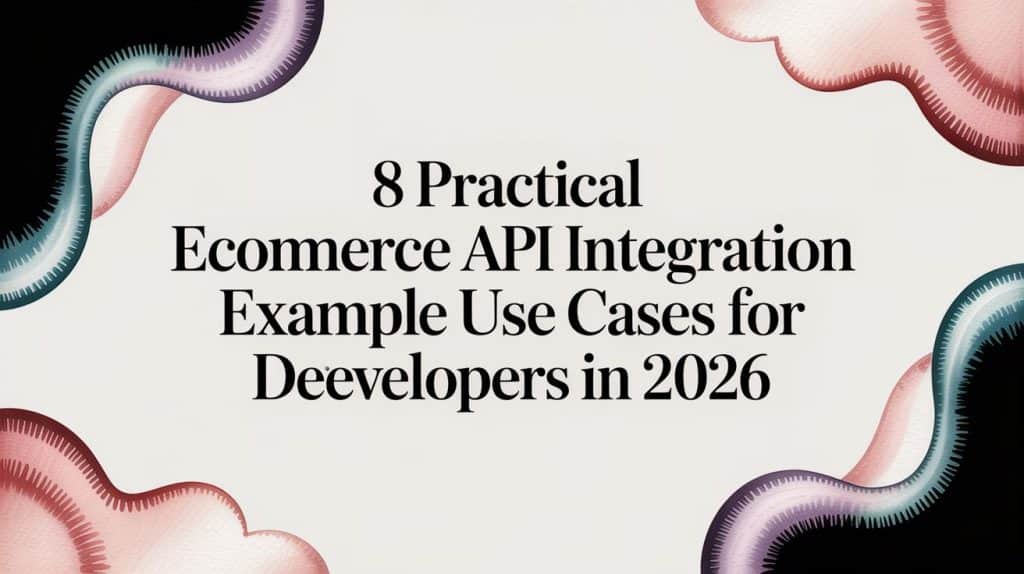
eCommerce Data API is significant. In the context of eCommerce, API integration refers to the connection between the different systems of software solutions and applications that transfer information conveniently to any marketplace. Such connection lets you manage data through the online store connected with an eCommerce platform – orders, articles, clientele, and so forth.
All these business practices have data as their foundation, including trading methods, inventory control, ordering, and warehousing. Software vendors also need to integrate with shopping platforms and collect accurate information for efficient ecommerce services. Let us discuss an e-commerce data API and how it operates today.
How Application Programming Interfaces Work?
eCommerce API refers to a set of regulations that enable users' applications to retrieve data from the ecommerce website's database. Includes product listings, client contacts, and order histories.
eCommerce APIs provide an easy way for developers to develop software utilizing information as well as functionality pertinent to the eCommerce platforms. Thus, they play a vital role in the process of software development.
API is commonly used by eCommerce developers to share data among the different available software applications. B2B software vendors often require accessing certain information on one of the shopping platforms, necessitating API integrations. These messages are basically mediators between different applications and digital products, conveying requests and transmitting responses as XML or JSON codes.
Oil refineries are now able to integrate their application processes and exchange data with other organizations through API integration in eCommerce. eCommerce cannot do without APIs as they enable connection and integration between distinct systems. Therefore, through APIs, developers can enhance their software as well as application development.
What Is Data API?
The types of eCommerce data API used to acquire contacts, through which each and every B2B SaaS company operates effectively. By using a single unified API solution, you can deal with details involving products, shipping, orders, and a host of other aspects from your clients' stores at once. This results in speedy linkages with clients' stores with such an integration.
Combining eCommerce data API into software or apps, vendor B2B SaaS solutions save many unneeded actions that consume considerable time. It is important to ensure that all online platforms always provide updated product information, thus making sure things are available. To expand their customer base, B2B SaaS solution providers need ecommerce-based data integration.
A typical eCommerce data API makes it possible for client applications developed on different programming languages and technologies to interact with a specific eCommerce system in a standardized manner.
The underlying protocol is usually HTTP, and the various activities supported include GET, POST, PUT, DELETE, etc.
Using an eCommerce Data API, developers can create applications, interfaces, or services for eCommerce. This means they could have different operations that they would pass via this API. Various conventional features comprise the integration of eCommerce data API with shopping platforms like the product management, order management, customer management, inventory management, cart management, as well as check in payment processing.
What are the main benefits of integration?
The benefits of using an eCommerce Data API include:
Integration with external applications: The eCommerce Data API connects e-commerce platforms with inventory management systems, CRM, accounting departments and shippers. It enables communication and streamlining processes which saves both time and money.
Customization and extensibility: The application also develops an eCommerce Data API that allows users to create very specific app experiences targeted at increased usability and addressing business objectives.
Real-time data access: Users can tap into real time information, which include product descriptions, stock levels, and orders using an eCommerce data API. The result of this development will enable providers to give real facts to customer as well as corporation apply policies depending on the current figures.
Scalability and performance: Through a firm's business growth, it doesn't need to consider about the mechanics by using an e-commerce data API. This makes firms focus on expansion without being worried about data exchange and related activities done by the APIs in the background.
How to Easily Develop eCommerce Data API Integration?
Since the problem is related to integrations, it's worth considering third-party support like API2Cart for best results. Therefore, this service handles all the implementation, enabling B2B SaaS solution vendors' freedom at their priority point.
B2B SAAS providers can use only one API when accessing multiple shopping platforms using API2cart. Therefore, this is an excellent option for software vendors who need shipping, order, and inventory management system solutions, among others, and enables SaaS software to synchronize online merchants' data based on famous store platforms like WooCommerce, Magento, Shopify, or OpenCart and more.
As a software developer, you can cut almost all of the problems related to integration with the shopping platforms and save much cash for constructing additional integrating modules and so forth, thanks to API2Cart's comprehensive, unified API.
Using API2Cart will make it easier for your company to connect to these common shopping platforms without a need for separate integrations. Additionally, there is no stress involved, considering API2Cart does not require improvement or maintenance.
Get started with your free 14-day trial that reveals how easy it is to connect with major online marketplaces around the world.



